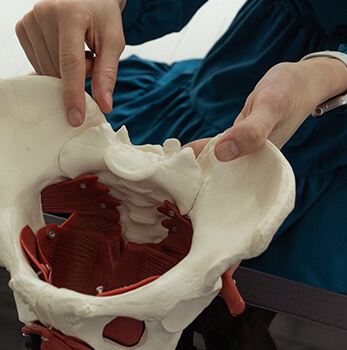Pelvic Floor Therapy
Taking control and building confidence
 Changes in body function can be common for people with cancer, and our dedicated cancer rehabilitation clinicians understand this unique, often distressing challenge.
Changes in body function can be common for people with cancer, and our dedicated cancer rehabilitation clinicians understand this unique, often distressing challenge.
Multiple types of cancer and their treatments may impact abdominal and pelvic floor muscles. This important group of muscles plays a pivotal role in maintaining the body’s bowel, bladder and sexual function.
The following cancers can affect the pelvic floor and increase the risk of problems with bowel, bladder and/or sexual function:
- Women - breast and/or gynecological cancers including uterine, ovarian, cervical, vulvar and vaginal
- Men - prostate or testicular cancer
Regardless of gender, anyone with bladder, rectal or anal cancer are also at risk.
If you have a cancer that impacts the pelvic floor, pelvic health therapy may be right for you.
What to expect
Your physical or occupational therapist, who specializes in pelvic health, will work alongside you and the rest of the cancer care team to create a care plan based on your individual functional status and goals. During the first visit, your therapist will examine you, listen to your story and assess your needs to develop a tailored strategy that is right for you.
Pelvic health therapy involves a combination of physical exercises to increase the strength and coordination of your trunk including your back, abdominals, hips, and pelvic floor muscles. Because the back, hip, and abdominal muscles are connected to the pelvis, exercising them helps improve, regulate and control your bowel, bladder and sexual function.
If you are experiencing challenges in one or more of these areas, our therapists will shape your program and address your specific needs through a combination of exercise, education, and manual therapy.
Our ReVital certified therapists will help put you back in the control of your pelvic health so you can get back to life.
Take Your Next Step with ReVital
